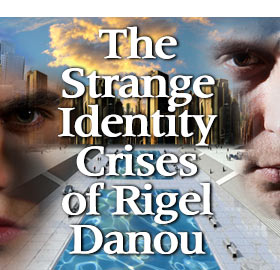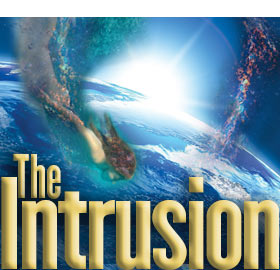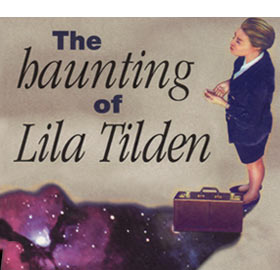NEW Paranormal novels by Barbara Barnum.
A futuristic tale of an authoritarian society, and some very strange occurrences.
PROLOGUE
There's a theory in quantum mechanics that the universe, all of existence, is primarily idea; that, like the atom, being is more motion than substance. This theory proposes that the stuff of our four-dimensional existence (time and space) is a thought in the mind of God, that all is a thought in the mind of God.
One formulation of the theory holds that existence spawns multiple realities, that it tries on all the possibilities. The theory is commonly called the many-worlds interpretation. In this theory the diverse realities are separated from each other only by their degrees of resonance, by the frequencies at which their ideas vibrate.
Read the first 2 chapters
A being returns to earth, and to the long-forgotten feeling of living in a physical body.
CHAPTER 1
God, the body felt terrible. She’d forgotten the heaviness, the pressure, the way it felt like a thousand creatures were on your back, weighing you down, trying to push you into the earth. How could she have failed to remember? And how could she have volunteered for this thankless task? For a moment, her resolve wavered, but only for a moment.
She focused on the body’s mentation. Good, the memories were intact. She ran a quick flashback through the life, picking up the highlights, sailing over details. Why on earth had Amanda Starkk wanted out? The last occupant had everything to live for: good looks, superior intellect, the finest education, professional recognition, all that most people ask of life on this particular planet. There was no accounting for how people felt here in the Garden.”
Previously published fiction by Barbara Barnum.
PARANORMAL FICTION
With one foot in the everyday world, and one foot in the paranormal, Lila struggles to separate reality and imagination. Do the strange events she's experiencing reveal a fragmented mind, or an alternate universe?
“Suddenly the wind picked up and started throwing street littler around. Lila closed her eyes in self-protection. The motion intensified, growing frenzied; she opened her eyes and squinted. The debris seemed to be settling, she could keep her eyes open now.... For a moment she was confused. She knew she was walking on the street, yet at the same time she was walking underground, beside a filthy tunnel, litter strewn evrywhere. The two places were superimposed on each other; the street and the tunnel were equally real. Then the tunnel took over ...”

HISTORICAL FICTION
An exotic re-imagining of one of the Bible’s most famous tales—the story of Abraham and Sarah—which asks this question: What if it were Abraham, not Sarah, who was infertile?
View Sarah’s challenges through her eyes, in her times. What are the pressures and pains in Biblical times, when society simply perceives infertility to be the woman’s fault? What if that woman were a strong and capable leader in her own right? How might such a woman function in a male-dominated society? Sarah’s perspective is seen through a diary found long after her death by her daughter-in-law, Rebekah. This novel stays as faithful to Biblical accounts as possible, while casting an eye on the role and status of women in this ancient era of worshiping one god, not many.









